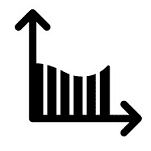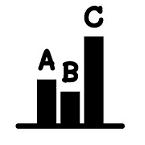This set of materials provide activities and tasks for mathematics teacher educators and programs to make direct connections to the AMTE Standards, and can be implemented in mathematics content or methods courses. The materials have been reviewed by the AMTE Publications Review and Professional Development committees to ensure strong alignment with the AMTE Standards.
About the AMTE Standards
The AMTE Standards for Preparing Teachers of Mathematics (SPTM) elaborate what beginning teachers of mathematics must know and be able to do as well as the dispositions they must have to increase equity, access, and opportunities for the mathematical success of each of their future students. The SPTM includes a set of comprehensive standards describing a national vision for the initial preparation of all Pre-K–12 teachers who teach mathematics. The standards are aspirational, supporting the development of a well-prepared beginning teacher rather than describing minimal levels of competency that beginning teachers need to meet. They address teacher candidate knowledge, skills and dispositions; program characteristics to develop teacher candidate knowledge, skills and dispositions; and the assessment within and of mathematics teacher preparation programs.
Equity-centered Transformative Technology
Equity-centered Transformative Technology is a set of modules designed to engage elementary teacher candidates (TCs) with deliberate decision-making around lesson development using technological tools, keeping equitable instructional practices at the forefront.

Enhancing Statistics Teacher Education through E-Modules
The ESTEEM materials focus primarily on developing secondary teacher learners’ pedagogical knowledge for teaching statistics and assume that learning from the materials already have basic subject matter knowledge of statistics (e.g., measures of center, measures of variability, statistical graphs).

Using Case Studies to Improve Mathematics Teacher Education
For developing elementary mathematics teacher candidates’ understanding of how to design, apply, and refine problem-solving tasks that are grounded in asset-oriented ways and begin with what children already know.

Preparing Teachers of Elementary Mathematics
For developing and deepening elementary mathematics candidates’ content and pedagogical content knowledge relating to number concepts, addition and subtraction, multiplication and division, fractions, elementary number theory, geometry, and geometric measurement.
Modules to Engage the Mentor Teacher
The SMP and MCP-LP Modules consist of three activities each and are intended to take place over some in-class sessions, some out-of-class work which includes engaging the mentor teacher.
Virtual Conference
These materials support elementary and secondary mathematics teacher candidates to engage in professional development and expand their professional network through a virtual conference assignment.
Mathematics Identity
Resource materials to support mathematics teacher educators in helping mathematics teacher candidates’ to explore their mathematics identity and how to support students in developing a positive mathematics identity.
Supporting Program Transformations Involving Secondary Content Courses
Resource materials focused on the development of prospective secondary mathematics teachers’ mathematical knowledge needed for teaching within upper-level content courses.
Supporting Elementary Teacher Candidates’ Ability to Design and Apply Problem-Solving Tasks
These materials are designed for elementary mathematics teacher candidates’ understanding of how to design, apply, and refine problem-solving tasks that are grounded in asset-oriented ways and begin with what children already know.
Preparing Teachers of Addition and Subtraction
For developing elementary mathematics teacher candidates’ content and pedagogical knowledge relating to operations and algebraic thinking, specifically structures of addition and subtraction.
Preparing Teachers to Notice Student Thinking Through a Task-based Interview Module
For developing mathematics teacher candidates’ knowledge and skills for attending to, interpreting, and responding to student thinking in a way that uses students’ current understandings and methods as a basis for instruction.
Preparing Teachers of Mathematics with Digital Instructional Materials
For developing mathematics teacher candidates’ knowledge and skills for selecting, planning, and enacting a variety of technology to support and facilitate effective mathematics teaching.
Preparing Teachers of Mathematics with a Math Work Station Project
For developing mathematics teacher candidates’ knowledge and skills for planning and creating a math work station, observing how students engage with mathematics at the station, and reflecting on students’ mathematical thinking.
